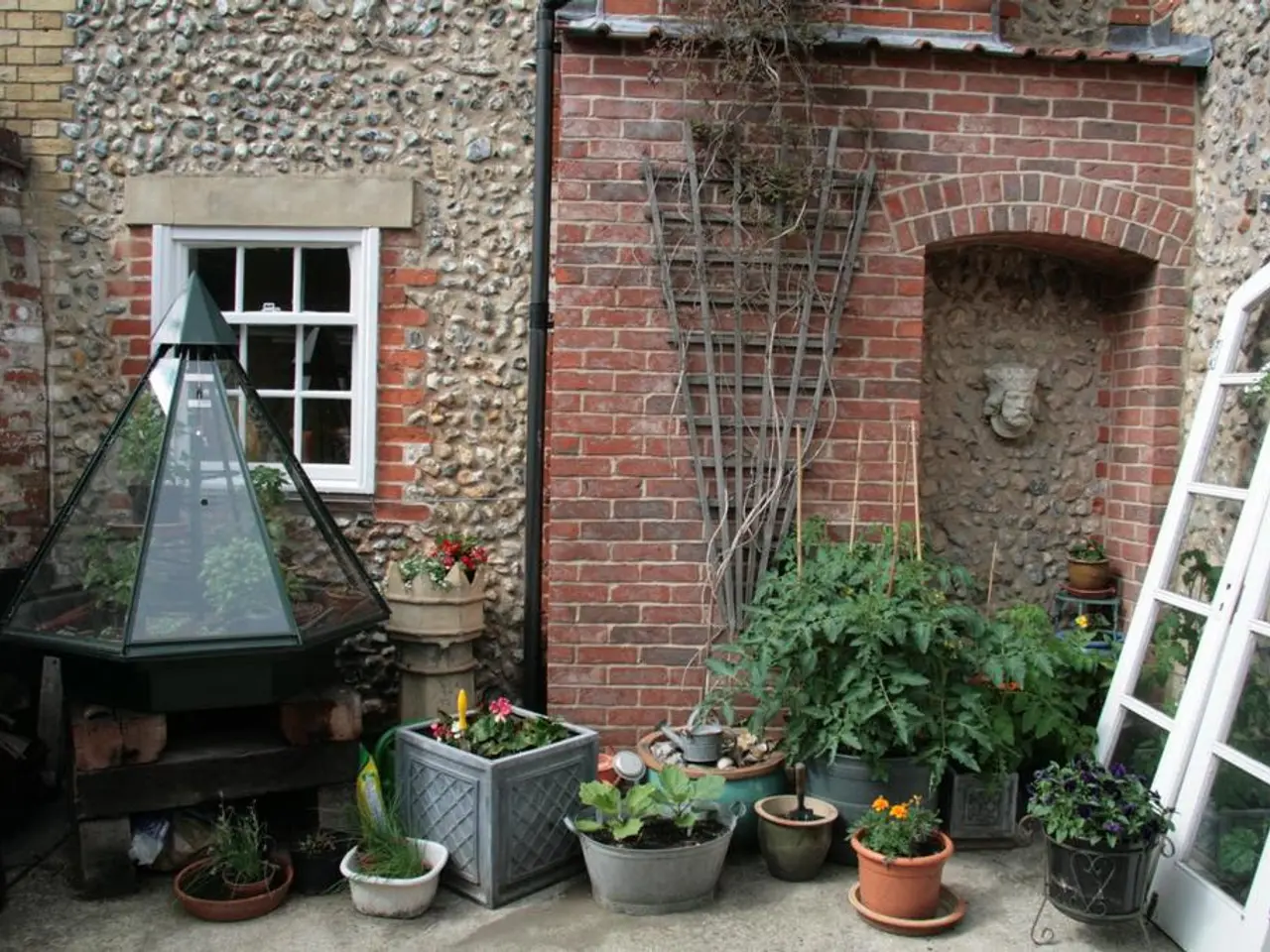Methods for Multiplying Geraniums via Stem Cuttings: Exploring Three Effective Plant Propagation Techniques
Geraniums, with their vibrant flowers and attractive foliage, are popular plants in many gardens. While traditionally grown as annuals in colder USDA zones, it is possible to cultivate geraniums as perennials in these regions. Here's a guide on how to grow and propagate both true perennial geraniums (Cranesbill) and tender Pelargoniums in colder zones.
Growing True Perennial Geraniums (Cranesbill)
True geraniums, belonging to the genus Geranium, are hardy perennials that thrive in colder zones. They are generally hardy to zones 3-9 and can survive winter outdoors without protection in zones colder than 10.
Planting
Choose a well-drained location with full sun to partial shade for your true geraniums. These plants tolerate various soil types and some drought once established.
Winter Care
True geraniums are cold hardy and generally survive winter outdoors without protection in zones colder than 10.
Propagation
True geraniums can be propagated by division or cuttings.
- Division: In early spring or fall, dig up clumps and divide roots to create new plants.
- Cuttings: Take softwood to semi-hardwood cuttings 4-6 inches long from healthy plants in spring or summer, remove lower leaves, optionally dip in rooting hormone, and insert into moist rooting medium.
Managing Pelargoniums (Tender Geraniums)
Pelargoniums, commonly called geraniums, are tender perennials hardy only to zones 9-11. In colder zones, they typically grow as annuals outdoors but can be overwintered indoors or treated as annuals.
Growing as Annuals
Grow Pelargoniums as annuals outdoors, or bring pots indoors before frost.
Overwintering Indoors
Overwinter Pelargoniums indoors in a bright, cool location.
Propagation
Propagate Pelargoniums through stem cuttings taken during the growing season and root indoors to replace plants the next year.
In summary, to have perennial geraniums in colder than zone 10-11, focus on growing hardy true Geranium species (Cranesbills) outdoors perennially. For tender Pelargoniums, either overwinter indoors or grow as annuals and propagate via cuttings yearly.
When starting geranium cuttings indoors to overwinter, use sterile potting mix, vermiculite, or a mix of perlite and sphagnum moss. Remove leaves from the bottom 2 inches of the cutting before propagating. Place the cuttings in bright but not direct sunlight and push the cutting into the medium far enough that it supports itself. Bury the bare leaf nodes of the cutting in the medium.
Allow the cutting to sit out for 3 days so the cut end forms a callus before planting it directly into the soil outside. This callus keeps fungal diseases from taking hold. Cover the container with a clear plastic bag to act as a mini greenhouse. Geranium cuttings should root in about 6-8 weeks, often earlier, when started indoors to overwinter.
Geranium cuttings are typically taken from a healthy plant in the late spring to early summer, or in the late fall to overwinter indoors. After taking the cutting, dip the cut end in rooting hormone. To take a geranium cutting, use sharp, sterile shears or a knife to take a 3-4 inch stem cutting from the terminal end of the shoots.
Starting geranium cuttings indoors to overwinter, place them in sterile potting mix, vermiculite, or a mix of perlite and sphagnum moss. Keep the medium consistently moist and place the container in a bright but not direct sunlight location. Geranium propagation is possible in USDA zones other than 10-11, where geraniums are generally grown as annuals.
References: 1. Garden Myths: Geraniums 2. Geranium Propagation 3. Growing Geraniums as Perennials 4. Geranium Care 5. Geraniums: Perennial or Annual?
- To cultivate true geraniums (Cranesbill) in your home-and-garden, select a well-drained location with full sun to partial shade, and prepare the soil for a hardy perennial that thrives in lifestyle zones 3-9.
- For gardeners residing in colder zones (9-11), managing Pelargoniums (tender geraniums) can be achieved through growing them as annuals outdoors, or overwintering them indoors, followed by propagating them via cuttings for the following growing season.




